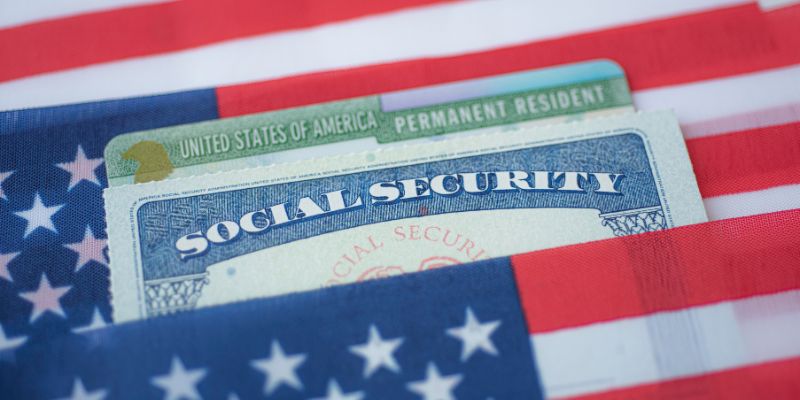Franklin D. Roosevelt, a monumental figure in American history, not only steered the nation through the depths of the Great Depression and the chaos of World War II but also left an indelible mark on the economic landscape. His groundbreaking economic policies were collectively known as the New Deal. They were more than just a response to crisis; they were a catalyst for profound change.
In this article, we will explore how Franklin D. Roosevelt’s economic policies shaped the modern American economy and what his main accomplishments and challenges were. We will also discuss why his economic policies are still relevant and influential today and what we can learn from them. So, stay tuned!
Who was Franklin D. Roosevelt?
Franklin D. Roosevelt, commonly known as FDR, was a pivotal figure in American history, serving as the 32nd President from 1933 to 1945. Born into a wealthy family, FDR faced personal adversity when struck by polio, yet his resilience defined him. His presidency is synonymous with navigating the nation through the Great Depression and World War II.
Today, Franklin D. Roosevelt's legacy lives on, and understanding his economic policies offers insights into shaping the modern American economic landscape.
What Do You Need to Know About Franklin D. Roosevelt’s Economic Policies?
Franklin D. Roosevelt left an indelible mark on the nation, particularly through his groundbreaking economic policies known as the New Deal. Here’s all you need to know about the Franklin D. Roosevelt’s economic policies:
The Great Depression
FDR assumed office in the midst of the Great Depression, a period of unprecedented economic turmoil. Millions were unemployed, businesses shuttered, and despair permeated the nation. Franklin D. Roosevelt’s economic policies were a response to this dire scenario, a bold attempt to lift the country from the depths of despair.
The New Deal: Relief, Recovery, and Reform
The New Deal was central to FDR's economic strategy, a multifaceted plan designed to provide relief to those suffering, spur economic recovery, and enact lasting reforms. The New Deal comprised various programs and agencies to tackle different facets of the crisis.
Accomplishments: A Transformation Unfolds
Among Franklin D. Roosevelt's accomplishments was the establishment of the Civilian Conservation Corps (CCC), which employed young men, and the Works Progress Administration (WPA), which created jobs and built public infrastructure. The Social Security Act brought about a revolutionary change by establishing a safety net for retirees and the unemployed, shaping the foundation of the modern social welfare system.
Banking and Financial Reforms
FDR faced the monumental task of stabilizing the banking sector. The Emergency Banking Act of 1933 sought to restore public confidence in banks, averting a complete financial collapse. The Glass-Steagall Act, another cornerstone, separated commercial and investment banking, aiming to prevent another economic catastrophe.

Legacy and Long-Term Impact
Franklin D. Roosevelt’s economic policies had a profound and lasting impact on the nation. Beyond immediate relief, these policies reshaped the government's role in the economy, fostering a more active and interventionist approach. Social programs initiated during the New Deal laid the groundwork for future government involvement in areas such as healthcare, education, and labor rights.
Relevance Today
The relevance of Franklin D. Roosevelt’s economic policies extends to contemporary economic debates. The ongoing discourse around the role of government in addressing financial crises, the importance of social safety nets, and the balance between regulation and free-market principles often trace its roots back to the New Deal era.
Criticism of the FDR Economic Policies
During the Great Depression, Franklin D. Roosevelt implemented a range of economic policies aimed at stabilizing the economy and providing relief to millions of Americans. While these policies were successful in many ways, they were also subject to criticism from both conservatives and liberals.
Conservative Criticisms
Conservatives were critical of FDR's economic policies, arguing that the government was intervening excessively and that the free market could regulate itself. They feared that government interference would impede economic growth and that the government's involvement in the economy was unsustainable.
Liberal Criticisms
Liberals, on the other hand, felt that FDR's policies did not go far enough to tackle discrimination against minority groups. They believed that FDR should have been more proactive in combating the systemic discrimination faced by marginalized communities.
Successes and Shortcomings
Despite the criticisms, FDR's policies were successful in stabilizing the economy during the Great Depression and providing relief to millions of Americans. However, they were not without flaws, and both conservatives and liberals pointed out areas where improvements could have been made.
Key Points to Remember from FDR Economic Policies
It's hard to find a more inspiring economic policy than FDR's. Here’s what the takeaway from the FDR economic policy:
- FDR's New Deal was crafted to provide relief, recovery, and reform to the American economy.
- The New Deal generated jobs and fortified the nation's infrastructure through public works projects.

- Social Security was established to offer a safety net for citizens in need.
- FDR's economic policies were highly useful in lifting the country out of the Great Depression and setting it on the path to prosperity.
With a proven track record of success, it's clear that FDR's economic policies are worth adopting by any country looking to establish a strong and prosperous economy.
Final Verdict
Finally, to sum up, Franklin D. Roosevelt’s economic policies played a highly crucial role in shaping the modern American economy. His New Deal programs laid the foundation for social welfare programs, strengthened labor unions, and created jobs that helped to alleviate the effects of the Great Depression. The policies also set the stage for future economic growth and stability in the United States.











